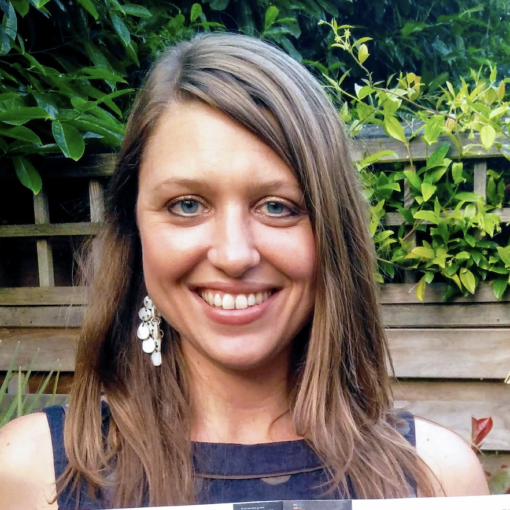DPhil Zoology, University of Oxford, 2020
| Assistant Ecologist | |
|---|---|
| Aspect Ecology Ltd | |
Year entered into a non-academic position: 2019
Job highlight:: Seeing and hearing a greater horseshoe bat on a dusk emergence survey. Plus holding my first great crested newt.
My research training set me up to… be able to learn new skills, methods and analyses and incorporate feedback efficiently.
Left academia after: PhD
What’s your background?
I have a background in behavioural ecology, specialising in anti-predation behaviours and sexual selection. After obtaining a BSc and MRes from Bangor University (2011-2015) I went on to complete a DPhil in Zoology at Oxford University.
The overall arching goal of my DPhil research was to explore the role of vigilance and alarm calling in the red junglefowl, Gallus gallus. I submitted my DPhil thesis in July 2019 and started my current job immediately after this, but prior to my viva exam.
Why did you move away from academia?
There were numerous reasons that led me to leave academia. I was dissatisfied with the demand of academic life and felt that my life was taken over by my research. I wanted a better work-life balance and a career that didn’t consume my thoughts every waking moment.
I also craved more stability in my life, and the nature of academic research normally requires moving all over the world chasing postdocs, with a very low percentage of people ever gaining a secure permanent position.
Finally, I wanted a career with a real-world impact, and I felt this was better achieved outside of academia.
Is there anything you miss about academia?
Academia provides you with the freedom to manage your own time and projects, and this freedom is something that I miss.
How did you get this job? Did you face any challenges when considering a move away from academia or applying for the role?
I faced several challenges when considering leaving academia, with the first one being the initial panic over what I was now going to do with my life! I had always wanted to work in academia, so coming to the realisation that it wasn’t for me was very emotionally difficult and utterly terrifying.
I spent a lot of my free time researching career paths within ecology and conservation, reading people’s experiences of transitioning from academia to other sectors and doing some introspection on what exactly I was looking for in a career.
I spoke with a career advisor within Oxford University’s Career Service and they suggested using LinkedIn to connect with people that had gone into careers within ecology and conservation. I took this advice and was able to connect with a senior ecologist who met with me in person. In our meeting he told me about his job, the positives and negatives of choosing that career path, the skills I should look to develop, etc.
What motivated you to/why did you choose the sector you transitioned into?
I considered various career paths including working for a non-profit, as well as science outreach or museum positions. However, I wanted my job to contain a strong field work component and a career path that was varied, where I could constantly learn new things and that strived to protect ecology; and this is what led me to seriously consider ecological consultancy.
Did you think you had the skills required for your current position before you started? Were you right?
I knew going into my current position that I lacked many of the botany/faunal identification skills often required. However, I am hardworking, able to learn new things relatively quickly, and can learn from feedback on my work and incorporate changes rapidly. Possessing those skills has certainly helped to improve both my office work and identification skills.
How did your PhD prepare you for your current job? For example, what were the transferable skills that you developed during your PhD that are most relevant to your current job?
The ability to learn new things and techniques has been paramount to improving in my current role.
Having written a 300-page DPhil thesis, I am very comfortable with writing and this skill has been very useful, a good PhD thesis knows how to effectively communicate your results to your examiners, and this ability to communicate results with the appropriate audience has been useful when drafting reports to clients.
My current role can be quite demanding due to long and unsocial hours because of the requirements of faunal surveys (e.g. bats are obviously active at night!). During my DPhil I completed 3 seasons of field work which certainly helped me prepare for the survey seasons I undergo within ecological consultancy.
Did you have any preconceptions about your sector that proved to be wrong?
I did a lot of research about the sector prior to entering it, including asking those within the sector the positives and negatives of their roles, so no I did not have any preconceptions that proved to be wrong.
Can you describe a typical week in your job?
My current role is incredibly varied and involves performing ecological appraisals for a range of sites across the UK. Some examples of my work include performing habitat and general fauna surveys, identifying important habitats and features, as well as protected species survey requirements.
Due to the variety there is no typical week per se. During the main fieldwork season (March-September) my week is usually spent doing office work interspersed with various surveys. During the winter there are fewer surveys being conducted, so a typical week is more office based.
What is the workplace culture like? Please include comments on work-life balance, flexibility, remote working?
The work-life balance within this sector is a huge improvement compared to what I experienced during my DPhil.
I certainly feel like I have my life back again and I get to enjoy my weekends without having to constantly think about work.
Most ecological consultancies work on a standard Monday-Friday 9-5 basis, however during the main survey season there will be occasions where you need to do a survey very late at night or several hours before dawn.. Most consultancies have offices for employees to work from and while some do provide the option of remote working this seems more common in the much smaller consultancies.
Do people with a PhD frequently get hired in the company/sector?
It is not uncommon for people with PhDs to be hired into this sector however PhDs are not typically required with a greater emphasis on field work experience and botany/faunal identification skills. Although my company does see the value in a PhD and has hired several people with PhDs in relevant disciplines.
What are your favourite parts of your job?
I love the more applied aspect of consultancy and how every day differs; it is certainly an interesting job.
What are your reflections on your career path?
While I certainly don’t regret doing my DPhil, had I realised sooner that academia was not for me then I may have taken a different path after my masters and instead spent the past few years gaining field work experience and developing my botany/faunal identification skills.
Do you have any advice for current graduate students and postdocs considering a career outside of academia?
Don’t panic! I understand how scary it is and how lonely it can feel when thinking about leaving academia but there are so many people out there that have found successful, wonderful careers and you can too.
My main advice would be to spend some time really thinking about thecareer that you want, and to seek out those that have left academia to request advice. You may also find it useful to read some blogs or forums about the transition from academia to other career paths.
What do you know now that you wish you’d known when exploring a transition?
I wish I had known how many other people leave academia and are happy with their decision. Leaving academia was a very isolating experience for me and I had no one to discuss it with in my department. While I did seek out people that had left academia for ecological consultancy, I was not aware how many more left academia for other career paths and this would have been reassuring to me.
Can you recommend any relevant resources, organisations or events that might help somebody new to the sector find out more about it?
LinkedIn is always a useful tool for finding jobs and connecting with those in your preferred career path. I have personally found both Facebook and Twitter to be very useful in finding jobs and getting insights into the lives of ecologists. Particularly the British Ecologists Facebook group (https://www.facebook.com/groups/847369591966377/) has been very useful along with the Career Ecologists group (https://www.facebook.com/groups/careerecologists/).
The main organisation for professional ecologists in the UK is the Chartered Institute of Ecology and Environmental Management (CIEEM), and so it would certainly be worth familiarising yourself with them and considering membership.
.
 Aspect Ecology Ltd are a medium sized consultancy based in Banbury, Oxfordshire. We specialise in providing ecological consultancy services to a well-established base of high-profile clients in both the public and private sectors. Our Oxfordshire based team has a wealth of experience and expertise advising on an extensive range of projects nationwide with a focus on integrating ecological habitats and wildlife benefits within new developments. We aim to help our clients achieve planning permission by advising on environmental mitigation and enhancement, securing developments that provide housing and other facilities while protecting the valuable biodiversity and habitat across the UK. We are a professional and friendly team of enthusiastic ecologists who thrive on innovation and delivering a high-quality output to our clients.
Aspect Ecology Ltd are a medium sized consultancy based in Banbury, Oxfordshire. We specialise in providing ecological consultancy services to a well-established base of high-profile clients in both the public and private sectors. Our Oxfordshire based team has a wealth of experience and expertise advising on an extensive range of projects nationwide with a focus on integrating ecological habitats and wildlife benefits within new developments. We aim to help our clients achieve planning permission by advising on environmental mitigation and enhancement, securing developments that provide housing and other facilities while protecting the valuable biodiversity and habitat across the UK. We are a professional and friendly team of enthusiastic ecologists who thrive on innovation and delivering a high-quality output to our clients.
For job postings, please see our website (http://www.aspect-ecology.com/join-us/) and/or our LinkedIn page (https://www.linkedin.com/company/aspect-ecology-ltd-/).
In addition, we are currently pursuing the opportunity to provide fixed-term internships for students of Oxford University via the Summer Internships programme, beginning 2021. For more information, please contact info@aspect-ecology.co.uk or the internships team at Oxford University.





